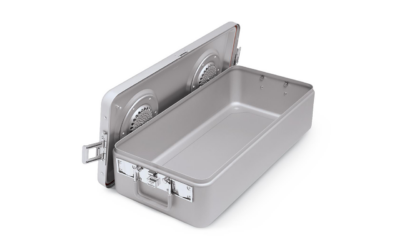
The medical carts and workstations market is expected to grow at a compound annual growth rate (CAGR) of 14.1% from 2020 to reach $8.77 billion by 2027, according to a new market research report published by Meticulous Research.
Over the last decade, medical cart workstations, or mobile computer carts, have played an important role in the medical and technological revolution. Not only do they provide ease of access for health care providers, but they also allow for compliance with federal health care mandates. These help to maintain and retrieve essential patient information whenever required. Also, treatment-specific carts are available to keep the medical instruments on it as per the requirement. These carts and workstations offer several features, including lighter design, scanner holders, locking wheels, among others to meet the ergonomic needs between mobile workstations and computers.
Some of the advanced features also include integration of mobile health care applications designed for physicians and nurses, thereby enhancing the reach of health care professionals at point of care. Traditionally, the
technological advancements in the medical carts and workstations industry are driven by evolution of medical technologies. Thus, rapid advancements in the field of care delivery are expected to further technological growth of the medical carts and workstations market over the coming years.
“As COVID-19 becomes widespread across the globe, the need for patient care has increased, and personal protection and medical equipment, including carts, are in high demand,” the report states. “In such conditions, carts/workstations play an important role in assisting health care workers. Also, manufacturers increased their production of carts and launched new carts, such as vaccine carts and accessories, such as sanitizer holders.
Grand View Research reports that the global medical carts market was valued at $1.28 billion in 2016 and is expected to witness a CAGR of 15.2% through 2025.
In a separate report, Grand View Market Research states the global radio-frequency identification (RFID) smart cabinets market size is expected to reach $1.5 billion by 2026. The rising need for proper inventory management in hospitals as well as pharmaceutical companies has led to increased demand for RFID smart cabinets and thereby market growth.
The advantages associated with RFID smart cabinets include data accuracy, real-time tracking, and lesser inventory waste and equipment losses. These factors decrease the operational costs of hospitals and pharmaceutical companies, and therefore, the hospitals have started to adopt RFID smart cabinets for tracking of various items across the globe.
The medical devices used for surgeries and other medical procedures are expensive and require proper maintenance. Tracking of these high-value hospital inventories is important. RFID smart cabinets have enabled hospitals to eliminate some costs by avoiding misplacement and theft of expensive medical devices.
North America has dominated the RFID smart cabinet market because of the local presence of market players, government initiatives, availability of innovative products and advanced health care infrastructure. Increasing demand of RFID smart cabinets is expected to propel growth at a CAGR of 11.6% from 2019 to 2026.









